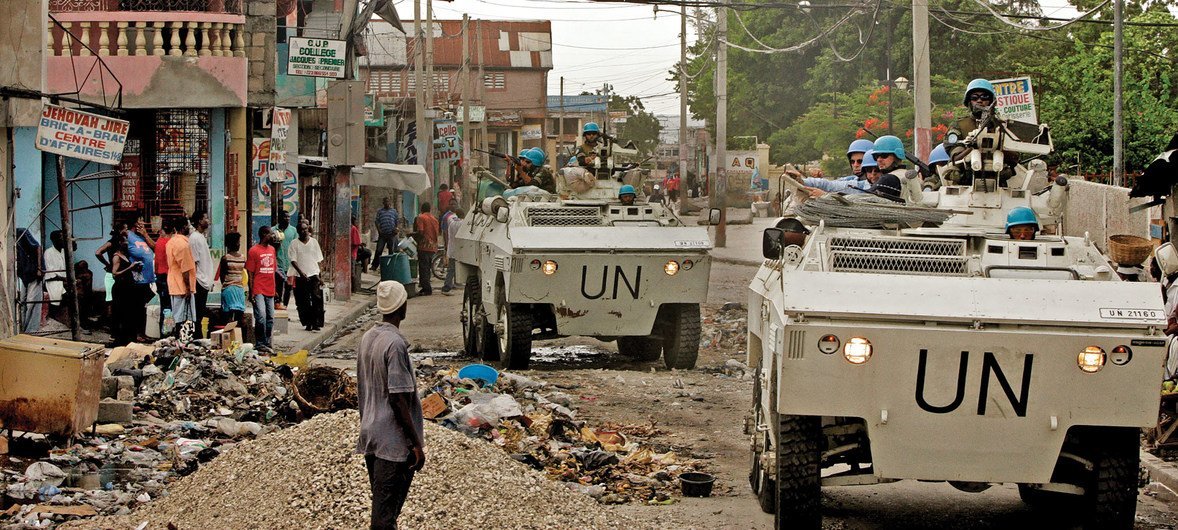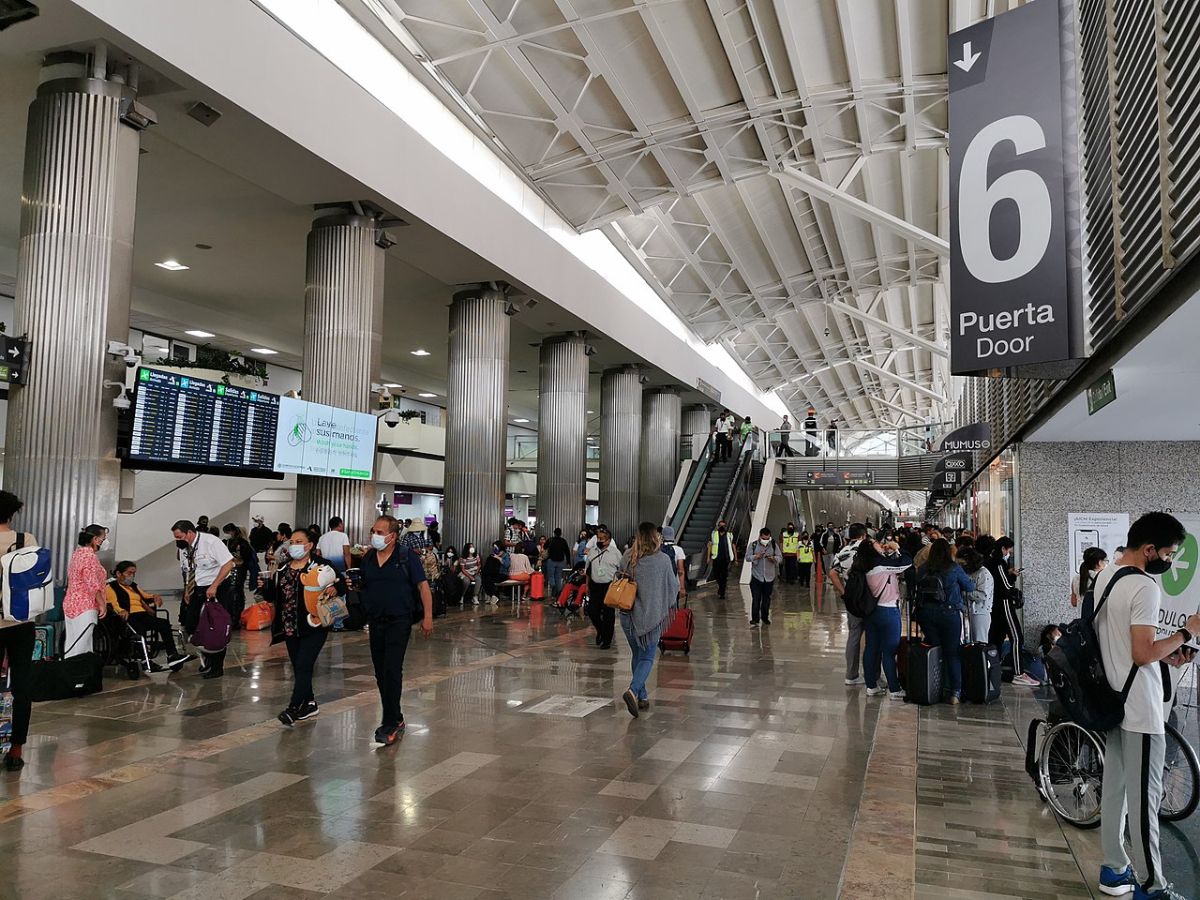Welcome to Factal Forecast, a look at the week’s biggest stories from the editors at Factal.
We publish our forward-looking note each Thursday to help you get a jump-start on the week ahead.
Week of October 6-13
A Look Ahead
Oct. 7 – Mexico’s Navy takes over operations of Mexico City Airport
Mexico’s military is continuing to lead an overhaul of their nation’s aviation industry, with the Navy set to take over operations for Mexico City International Airport on Saturday.
What’s happened so far
In an avowed attempt to combat mismanagement and corruption, Mexican President Andrés Manuel López Obrador has begun handing over control of much of the country’s civilian aviation industry to the military, with the Army and Navy now operating more than a dozen airports across the country. A military-run aviation line has also launched after the government purchased defunct airline Mexicana de Aviacion in August.
The impact
Both domestic and international airlines, along with the U.S. government, have expressed ire with López Obrador’s intervention in the aviation industry — many of the changes have been made in an attempt to push air traffic toward the newly built Felipe Ángeles International Airport serving Mexico City, but with limited success. The militarization of Mexico’s economy, though an effective tool for López Obrador’s projects, has drawn criticism for putting unelected military leaders in charge of civilian sectors.
Oct. 8 – FARC-Colombian government negotiations in Catatumbo
Colombian officials will meet with dissidents of the FARC rebel group on Sunday in the latest attempt to stop the country’s decades-long armed conflict.
What’s happened so far
In 2016, FARC agreed to disband as part of a peace deal with the Colombian government, but not all members agreed to lay down arms. President Gustavo Petro, who became the country’s first left-leaning leader last year, has been negotiating with the remaining rebels as part of his “total peace” strategy. The largest of those dissident groups, the Estado Mayor Central, agreed to a ceasefire late last year, but the government suspended it in May in some provinces after four Indigenous teenagers were allegedly forced to join the group and then fatally shot when they tried to escape. Now, several months later, both sides have agreed to a 10-month national ceasefire and peace treaty talks.
The impact
Petro has had several issues so far during his presidency, including off-and-on ceasefires with the numerous rebel groups operating in the country. This latest one is happening just weeks before regional elections in the country. At a time when Petro’s approval ratings are low, this may be his government’s attempt to give people a reason to vote for his party. The peace talks also came with a promise not to interfere in the elections.
Oct. 10 – Anniversary of Russian missile campaign
Tuesday marks the anniversary of the start of Russia’s missile campaign across Ukraine that persisted through last winter.
What’s happened so far
The campaign began in October 2022 with a mass salvo of long-range missile and drone attacks targeting critical civilian infrastructure across Ukraine, with educational and cultural buildings damaged along with half of the country’s power infrastructure. Last year’s campaign was characterized by persistent missile strikes deep into Ukraine beyond the frontlines, systemically targeting critical energy facilities in an apparent attempt to freeze Ukrainian civilians during the height of winter.
The impact
Ukrainian officials are preparing for Russia to renew long-range strikes on the power grid as winter approaches. In a possible prelude to a renewed campaign to freeze Ukrainians, Moscow struck energy infrastructure in late September, leaving multiple western and central regions without power. Western support for Ukraine has prioritized providing Kyiv with more advanced air defense systems since last winter’s campaign. Air defense systems are not a panacea, though, and Russia has exceeded pre-war missile production levels in spite of western sanctions and export controls, raising fears of another winter of persistent long-range Russian strikes.
Oct. 10 – World Court to hear Syria torture claims
The World Court on Tuesday is set to a hear a joint case submitted by the Netherlands and Canada accusing Syria of “countless violations of international law,” including torture and arbitrary detention.
What’s happened so far
Syria’s multi-sided conflict began in 2011 when anti-government protesters rallied against President Bashar al-Assad and were met with deadly violence. With a political vacuum left behind, armed groups have continued to fight and the country remains controlled by varying factions. The civilian death toll has been immense, with rights groups placing it at about a quarter of a million people, including at least 14,000 civilians tortured in government prisons, according to human rights monitors.
The impact
The hearing is set to take place in The Hague and will be the first time an international court will talk about torture abuses reportedly committed by the Syrian government over the 12-year-old conflict. Both the Netherlands and Canada argue that the Assad regime has repeatedly violated the UN’s anti-torture resolution, but the government denies any allegations of torture, despite documentation from multiple human rights organizations.
Oct. 10 – Liberian general election
Liberia will hold its presidential and parliamentary elections on Tuesday with dozens of candidates running for seats.
What’s happened so far
President George Weah will run for re-election facing 19 rivals, including former Vice President Joseph Boakai and businessman Alexander Cummings. In addition to picking the next president, voters will elect 73 members of parliament and 15 new senators.
The impact
The European Union will deploy an observation mission to the country to ensure a “competitive, transparent and peaceful” election, EU’s foreign policy chief said. Allegations of corruption and people’s anger over rising food prices overshadowed Weah’s first term in office, with some protests taking place late last year. His main challenger is expected to be Boakai, who recently allied with influential former warlord and senator Prince Yormie Johnson.
Oct. 11 – Mozambique local elections
On Wednesday, voters across Mozambique will participate in the country’s sixth local elections since independence.
What’s happened so far
More than 11,500 candidates from 11 different political parties, three coalition parties and several other citizen groups are running in this year’s local elections. The polls come one year ahead of Mozambique’s general elections, which have been delayed after a request by the ruling party due to the need to revise the country’s constitution.
The impact
The campaign, which kicked off last week, has already seen some unrest with reports of violence clashes involving supporters of different parties, and a civil society electoral observation group accusing ruling party Mozambique Liberation Front of misusing state assets. The Mozambique Democratic Movement party also said electoral material was vandalized in Tete, and six of its members were arrested in Beira and Chiure after being accused of violating electoral law.
What Else Matters

UN approves multinational security mission in Haiti
On Monday, the UN Security Council passed a resolution for a year-long multinational security mission to Haiti, a landmark vote that is set to send forces to the gang-ridden country for the first time in almost 20 years. The mission will be led by Kenya, who has already pledged 1,000 police officers, with other member states, including the United States, providing support and financial assistance. According to the UN, almost 2,500 people have been killed and more than 900 others injured from Jan. 1 until mid-August due to growing and uncontrolled gang violence that left thousands displaced. The UN’s move follows repeated calls by current Haitian President Ariel Henry for an international force to assist in fighting gangs, which now reportedly control 80 percent of the capital Port-au-Prince.
Watch for: Gang violence has been consistent over the last two years, and, even with a multinational force set to train local police officers to quell that violence and assist in “targeted operations,” increased levels of violence, displacement and conflict are likely to continue. It is hard to tell how effective the mission will be as well as when exactly the initial onset of physical forces will be deployed. Civil unrest or protests may arise in unison with the forces’ deployment, due to the controversial and failed past missions of the UN. Gangs have already vowed to fight against a possible foreign force, and clashes could be seen around critical infrastructure such as transportation hubs, hospitals, populated areas and fuel terminals as the mission is mandated to secure and maintain those points.
Conflict between army and Tuareg militants in northern Mali
Mali’s government began redeploying troops to the northern Kidal region on Monday as a conflict continues to escalate with a coalition of Tuareg separatist groups in the neighboring Gao region. The Coordination of Azawad Movements (CMA) claim to have seized control of four army bases since August, following allegations that the Malian military, backed by Wagner mercenaries, was in violation of a 2015 peace agreement. Authorities in the Gao region have imposed a nightly curfew on all civilian movements through at least Oct. 10.
Watch for: Civilian protection measures such as the curfew are likely to be extended and strengthened as reports of fighting between the army and Tuareg rebels intensify. On Sept. 28, the CMA claimed responsibility for an attack on a military base in Dioura, in the central Mopti region, its most southerly assault yet and an indication the violence is spreading southward out of the traditional Tuareg strongholds. Islamist militant groups, including Jama’at Nasr al-Islam wal Muslimin, are also present in northern Mali and could capitalize on the insecurity to increase their reach or stage further attacks.
Extended Outlook
What’s on our radar in the coming weeks…
Oct. 6-13
Oct. 7
- Mexican Navy takes over operations of Mexico City International Airport
- FARC-Colombian government negotiations in Catatumbo
Oct. 8
- Luxembourg general election
- IMF-World Bank meeting in Marrakech, Morocco
Oct. 9
- International aid conference in Derna, Libya
- ICJ hearing on Syria torture claims
Oct. 10
- Liberia election
- Russia winter campaign start date anniversary
- World Court to hear Syria torture claims
Oct. 11
- Mozambique local elections
Oct. 12
- 141st International Olympic Committee Session begins in Mumbai
Oct. 14-20
Oct. 14
- New Zealand elections
- Annular solar eclipse across North, Central and South America
- Voice referendum in Australia
Oct. 15
- Ecuador runoff election
- Poland parliamentary elections
Oct. 20
- African football league starts
- Pan American Games begin in Santiago, Chile
- Japan parliament extraordinary session
Oct. 21-27
Oct. 21
- Nawaz Sharif returns to Pakistan
Oct. 22
- Swiss parliamentary elections
- Argentina general elections
Oct. 28-Nov. 3
Oct. 29
- Turkey centennial
- Regional elections in Valle del Cauca, Colombia
Oct. 30
- Philippines local elections
Thanks for reading! If you want the Factal Forecast in your inbox, you can sign up for free.
Top photo: Mexico’s Navy started taking over control of Mexico City International Airport, pictured above, over a year ago as part of an attempt to push air traffic toward the newly built Felipe Ángeles International Airport. (Photo: ProtoplasmaKid / Wikimedia Commons)
Factal gives companies the facts they need in real time to protect people, avoid disruptions and drive automation when the unexpected happens.
Try Factal for free or talk with our sales team (sales@factal.com) for a demo.

